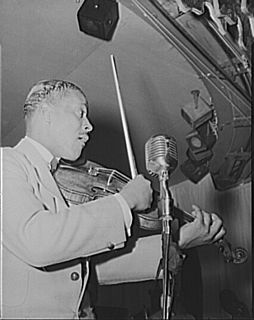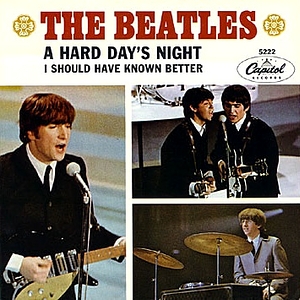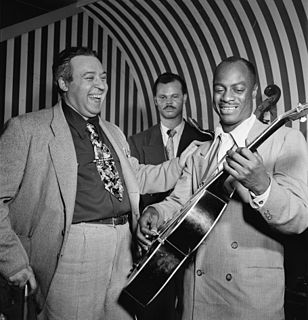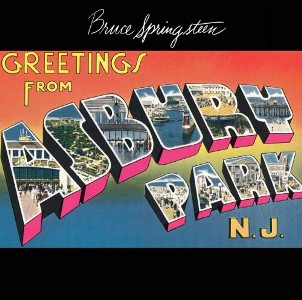
Greetings from Asbury Park, N.J. is the debut studio album by Bruce Springsteen. It was produced by Mike Appel and Jim Cretecos from July through September 1972 at the budget-priced 914 Sound Studios. The album was released January 5, 1973, by Columbia Records to average sales but positive critical reviews.
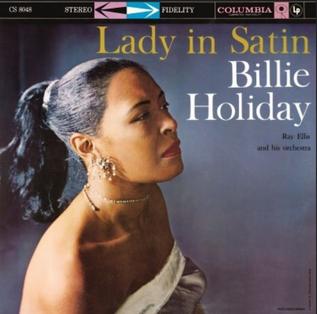
Lady in Satin is an album by jazz singer Billie Holiday released in 1958 on Columbia Records, catalogue CL 1157 in mono and CS 8048 in stereo. It is the penultimate album completed by the singer and last released in her lifetime. The original album was produced by Irving Townsend, and engineered by Fred Plaut.

The Sidewinder is a 1964 album by the jazz trumpeter Lee Morgan, recorded at the Van Gelder Studio in Englewood, New Jersey, U.S. It was released on the Blue Note label as BLP 4157 and BST 84157.
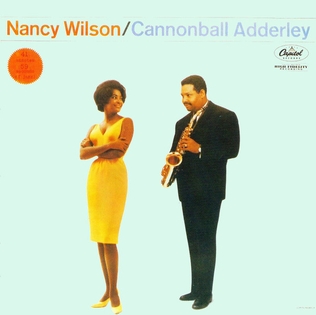
Nancy Wilson/Cannonball Adderley is a studio album by Nancy Wilson and Cannonball Adderley issued in February 1962 by Capitol Records. The album rose to No. 30 on the Billboard Top LPs chart.

Further Definitions is a 1961 jazz album by Benny Carter and his orchestra, rereleased on CD in 1997 coupled with his follow-up album, 1966's Additions to Further Definitions. The earlier album features an all-star octet which includes Coleman Hawkins, with whom Carter had recorded in Paris in 1937, using the same configuration of instruments: four saxophones, piano, guitar, bass, and drums.

Night Train is an album by the Oscar Peterson Trio, released in 1963 by Verve Records.

Ellington Indigos is a 1958 jazz album by Duke Ellington.
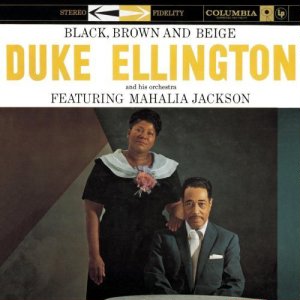
Black, Brown and Beige is a 1958 jazz album by Duke Ellington and his orchestra, featuring Mahalia Jackson.

The Big Gundown is an album by American composer and saxophonist/multi-instrumentalist John Zorn. It comprises radically reworked covers of tracks by the Italian film composer Ennio Morricone.

Bennie Ross "Hank" Crawford, Jr. was an American R&B, hard bop, jazz-funk, soul jazz alto saxophonist, arranger and songwriter. Crawford was musical director for Ray Charles before embarking on a solo career releasing many well-regarded albums on Atlantic, CTI and Milestone.
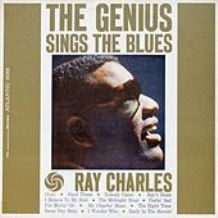
The Genius Sings the Blues is an album by Ray Charles, released in October 1961 on Atlantic Records. The album was his last release for Atlantic, compiling twelve blues songs from various sessions during his tenure for the label. The album showcases Charles's stylistic development with a combination of piano blues, jazz, and southern R&B. The photo for the album cover was taken by renowned photographer Lee Friedlander. The Genius Sings the Blues was reissued in 2003 by Rhino Entertainment with liner notes by Billy Taylor.

Cannonball Adderley and the Poll-Winners is an album by jazz saxophonist Julian "Cannonball" Adderley released on the Riverside label, featuring performances by Adderley with Wes Montgomery, Ray Brown, Victor Feldman, and Louis Hayes.

Plus is an album by Cannonball Adderley Quintet released on the Riverside label featuring performances by Adderley with Nat Adderley, Wynton Kelly, Victor Feldman, Sam Jones and Louis Hayes.

Frank Sinatra's Greatest Hits! is Frank Sinatra's first compilation released on his own Reprise Records. It concentrates on mostly single releases from the mid to late 60's, which fluctuates between adult contemporary pop and jazzy swing. The album opens up with Sinatra's recent number one hit "Strangers in the Night" and continues through the varied styles of music Sinatra recorded in the 60's, from easy listening ballads like "It Was a Very Good Year" and "Softly, as I Leave You" to contemporary pop like "When Somebody Loves You" and "That's Life". Greatest Hits was a modest hit, peaking at #55 on the album charts in late 1968. A second volume was issued in 1972, Frank Sinatra's Greatest Hits, Vol. 2. Both albums have since been supplanted with newer and more cohesive compilations.

Duke Ellington's Jazz Violin Session is an album by American pianist, composer and bandleader Duke Ellington recorded in 1963 but not released on the Atlantic label until 1976. The album features members of Ellington's orchestra performing with Stephane Grappelli and Svend Asmussen. Trumpeter Ray Nance, who was also featured in the Ellington Orchestra as a singer and a violinist, plays violin throughout the session alongside Grappelli. Asmussen, whose primary instrument was violin, plays viola throughout the session. Each of the string players is given a solo feature: Grappelli plays "In a Sentimental Mood," Asmussen plays "Don't Get Around Much Anymore," and Nance plays "Day Dream." For the remainder of the session, all three string players are featured soloing in turn.
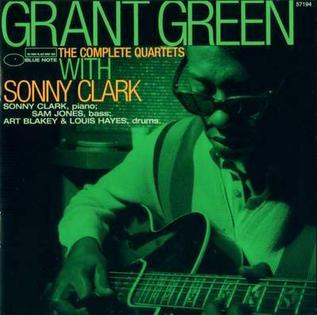
The Complete Quartets With Sonny Clark is a 1997 compilation album by jazz guitarist Grant Green, collecting together all the tracks from a series of albums he recorded with pianist Sonny Clark in 1961 and '62.

More Soul is an album by jazz saxophonist Hank Crawford. Atlantic Records released the album in 1961. More Soul is Crawford's first album as a leader, recorded on October 7, 1960 while he was the music director in Ray Charles' group. Charles provided the arrangement for the track "The Story."

Chris Connor is an album by jazz singer Chris Connor. Atlantic Records released the album, Connor's first for the label, in 1956. The recording was Atlantic's first jazz vocal LP record.

Jaki Byard with Strings! is an album by pianist Jaki Byard recorded in 1968 and released on the Prestige label. It is a sextet recording, with George Benson (guitar), Ray Nance, Ron Carter (cello), Richard Davis, and Alan Dawson.
